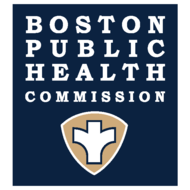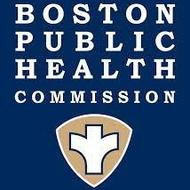Flu (Seasonal Influenza)
Learn about the flu (seasonal influenza) and how to protect yourself and your family this flu season.
The Flu (seasonal influenza) is a contagious illness caused by the influenza virus. Flu symptoms can range from mild to severe and include fever, cough, muscle aches, headache, runny nose, sore throat, and general weakness. The onset of these symptoms may be sudden. Most flu activity occurs from from October through March each year. The easiest way to protect you and your family from flu is by getting the flu vaccine.
General Information about Flu
General Information about FluEveryone 6 months and older should get vaccinated for the flu. Vaccinating is the best way to protect yourself and those around you. Certain people are at greater risk for serious illness if they get influenza. High risk people include the elderly, young children, and pregnant women. Health conditions such as asthma, diabetes, and heart disease also put people at higher risk for serious illness from the flu. Individuals that are not high risk can still pass the virus to others who are high risk. The flu vaccine provides individual and community protection against the flu.
Influenza activity in the Boston area is usually highest from October through March. Getting a vaccine early in the flu season can provide longer protection against the virus. However, vaccines are available all season. Adults and older children will only need one dose of vaccine for protection; some children under 9 will need two doses. Check with your health care provider to make sure.
Residents are encouraged to contact their healthcare provider, visit a local pharmacy, or visit the CDC’s Vaccine Finder to find an accessible vaccine clinic.
It is important to keep in mind that people can still spread viruses even when feeling better. Taking enhanced precautions, including wearing a mask in public when sick, are especially important for protecting those who are most at risk, including adults aged 60 and older, children younger than 5 years old, pregnant people, and people with chronic medical conditions. Enhanced precautions include:
-
Wear a mask:
- For five days after being sick.
- If you must leave the house while sick.
- If you are at high risk of severe illness.
-
Seek treatment from a trusted healthcare provider if you test positive for COVID-19 or flu and are at high risk for severe disease and/or illness.
-
Wash your hands regularly with soap and water for at least 20 seconds.
-
Regularly disinfect and clean high tough surfaces.
-
Increase indoor ventilation and air circulation, even cracking open a window helps increase airflow.
For in-dept Massachusetts guidelines, please refer to the MA Department of Public Health's recommendations.
Vaccination offers the best protection against influenza! Influenza appears in Boston every year causing illness in thousands of people. Each year a new flu vaccine protects against the top three to four strains of influenza expected to circulate in the community. Since the strains change each year, staying protected means getting a vaccine every year.
Influenza is unpredictable and can be severe. Between 1976 and 2006, CDC estimates from 3,000 to 49,000 people died each year from influenza.
What are the risks of the flu vaccine?
Most people do not have a problem with the vaccine. Side effects may occur, but severe reactions are very rare. The following are possible side effects that may occur, ranging from mild to severe.
Mild side effects (usually begin soon after the shot and last 1-2 days):
- A sore arm, swelling, and/or redness at the injection site
- Sore, itchy red eyes, cough, or hoarseness
- Fever, aches, headache, fatigue, itching
Moderate side effects:
- Getting a flu and pneumonia vaccine at the same time can put young children at risk for seizures caused by fever. Ask your health care provider for more information and tell your doctor if your child has ever had a seizure before getting your child vaccinated.
Severe side effects:
- Life-threatening allergic reactions to vaccines are very rare. If they do occur, it’s normally within a few minutes to a few hours after getting the vaccine. Minimize the risk by telling your health care provider if you have any severe allergies, including to eggs, or if you have ever had a severe allergic reaction to vaccines.
What should I do in the rare case I have a severe reaction?
Call a health care provider and seek treatment immediately if you have a severe reaction within hours of getting a flu vaccine. Symptoms of a severe reaction include high fever, change in behavior, difficulty breathing, hives, and feeling weak or dizzy.
Flu symptoms can range from mild to severe and include:
- Fever
- Cough
- Muscle aches
- Headache
- Runny nose
- Sore throat
- General weakness.
The onset of these symptoms may be sudden.
FIND VACCINATION SITES NEAR YOU
Residents are encouraged to contact their healthcare provider, visit a local pharmacy, or visit the CDC’s Vaccine Finder to find an accessible vaccine clinic.
Flu Dashboard
Boston Flu Report
Flu DataInfluenza Virus in Boston Wastewater
BPHC monitors flu wastewater levels at 10 testing sites across the city. The concentration of influenza virus in our wastewater has been steadily decreasing.
ED Visits in Boston for Influenza-like Illness
Compared to previous flu seasons there has been a significant uptick in ED visits due to flu-like symptoms. We see two distinct patterns: the number of cases is higher than previous seasons, and the increase has occurred later than in previous seasons. However, we are currently seeing a decrease in ILI visits, hospitalizations from ED visits for ILI and total confirmed cases of influenza.
Confirmed Influenza Cases
Confirmed Cases of Influenza in Boston by Age group
Flu-like illness remains relatively high in Boston. However, we have observed decreases in confirmed flu cases among Boston residents across all age groups during the current flu period with the highest number of cases noted in the 18-44 age group.
Percent of Boston Residents by Age group who received Flu Vaccine
Overall flu vaccination rates remain low in Boston.
Community Conversations: Hear from Our Community Members
Dr. Bisola Ojikutu
Executive Director, Public Health Commission
English
Dr. Sari Sanchez
Medico de Salud Publica
Español
Claudia
Mãe
Português
Monise
Manman
Kreyòl ayisyen
Jair
Pâi
Kriolu
Cynthia
Madre/Influenciador Comunitario
Español
Jair
Father
English
Dr. Natalie Joseph
Pedyat
Kreyòl ayisyen
Lisa
Mâi
Kriolu
Zilda
Mãe
Português
Vaccine Myths and Facts
Myths & FactsFact 1: Hand washing and clean water are important to stop the spread of many diseases. However, many infections can still spread regardless of how clean we are. Vaccination is essential to stop the spread of infectious diseases. If people are not vaccinated, uncommon diseases, such as measles, can come back.
Fact 2: Vaccines are very safe. Vaccines go through thorough testing for years before approval for public use. vaccine monitoring continues after public approval. The Vaccine Adverse Event Reporting System is a national program that monitors reactions to vaccines. The Vaccine Adverse Event Reporting System ensures that the benefits of vaccines far outnumber the risks. Most vaccine reactions are minor and temporary, such as a sore arm or mild fever. Serious health events due to vaccines are extremely rare.
Fact 3: There is no evidence that these vaccines cause SIDS. Ninety percent of SIDS cases occur before an infant reaches the age of 6 months. The rate of SIDS is highest between 1 and 4 months of age. Unfortunately, this is the age when children receive their DTaP and polio vaccines. SIDS deaths are co-incidental to vaccination. These deaths would occur with or without these vaccines.
Fact 4: Many vaccine preventable diseases are uncommon in the United States. But, these diseases still exist in the rest of the world. Measles, for example, is still common in some countries in Europe, Asia, the Pacific, and Africa. In 2014, there was a large outbreak of measles at the Disneyland theme park in California. Unvaccinated people made up the majority of those who got measles. Measles is very contagious and spreads easily among unvaccinated people. Vaccines can protect us at home or when we are on vacation from diseases that we may not know are around us.
Fact 5: There is no evidence that simultaneous vaccines hurt a child's immune system. Children face daily exposure to hundreds of foreign substances that can cause an immune response. Offering multiple vaccines at once decreases the number of clinic visits. This saves time and money. Combined vaccination is also less painful to children. In the case of MMR, it means fewer injections.
Fact 6: Influenza is a serious disease. The flu affects hundreds of people in Boston each year. Pregnant women, small children, the elderly, and those with chronic conditions, are at higher risk for severe illness from flu. It is important for pregnant women to get the vaccine. Mothers need to protect their newborns since there is no vaccine for babies under six months of age. The vaccine protects against the 3-4 strains of flu expected to circulate in a particular year.
Fact 7: Some vaccines contain thimerosal. Thimerosal is an organic, mercury-containing compound used as a preservative. It is most often used in multi-dose vials. Studies show that thimerosal is safe, and the amount used in vaccines does not cause a health risk.
Fact 8: No. There is no evidence to link vaccines and autism.











